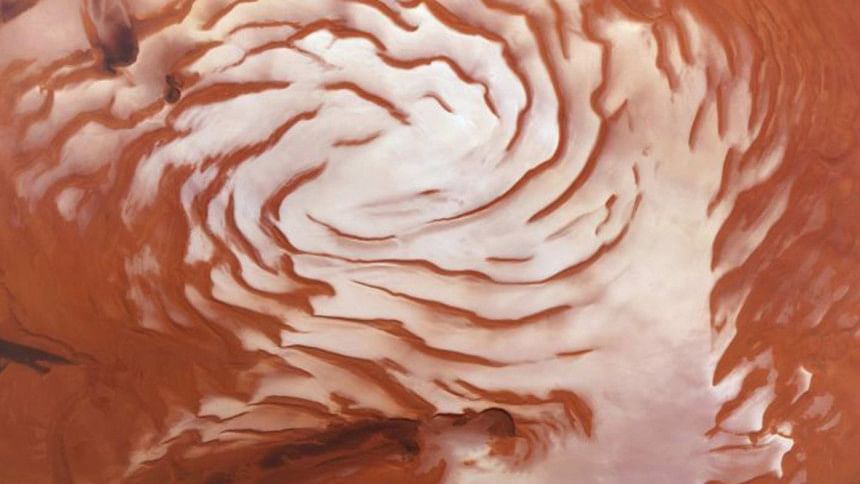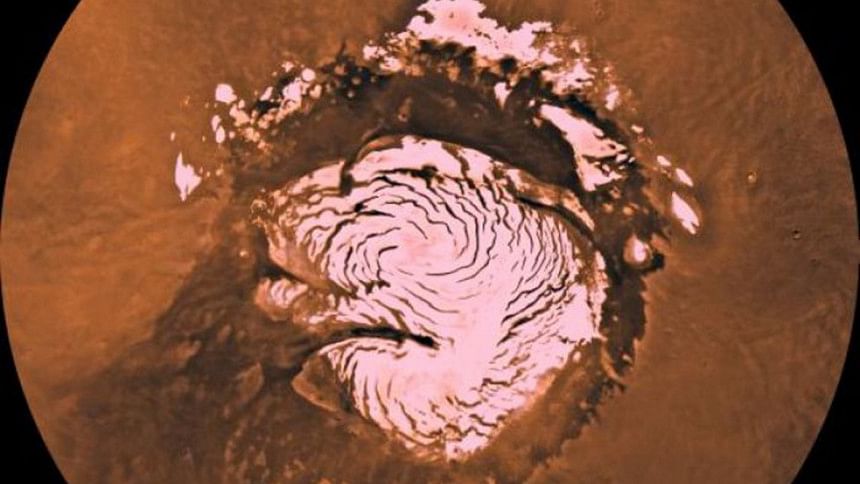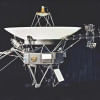Ice on Mars: The red planet going through an ice age

Mars is going through an ice age, according to a new study.
Based on radar data collected by Nasa's Mars Reconnaissance Orbiter, researchers at the Southwest Research Institute have found an increase in ice at Mars' north pole is consistent with the long-term drop in temperature associated with an ice age, reports Cnet.
"We found an accelerated accumulation rate of ice in the uppermost 100 to 300 metres of the polar cap," said the SwRI's Isaac Smith, lead author of a paper published the journal Science, in a statement. "The volume and thickness of ice matches model predictions from the early 2000s."
Similar factors cause ice ages on both Earth and Mars, namely long-term changes in the orbit and tilt of the planet, Cnet reports.

Mars' tilt, however, changes much more wildly, up to 60 degrees on the scale of hundreds of thousands to millions of years. Earth's tilt only changes by about two percent on the same timescale. On Mars, the exaggerated tilt determines how much sunlight reaches certain regions.
These results will help understand Earth's climate better, as well as provide valuable information for human exploration on Mars.

 For all latest news, follow The Daily Star's Google News channel.
For all latest news, follow The Daily Star's Google News channel. 








Comments